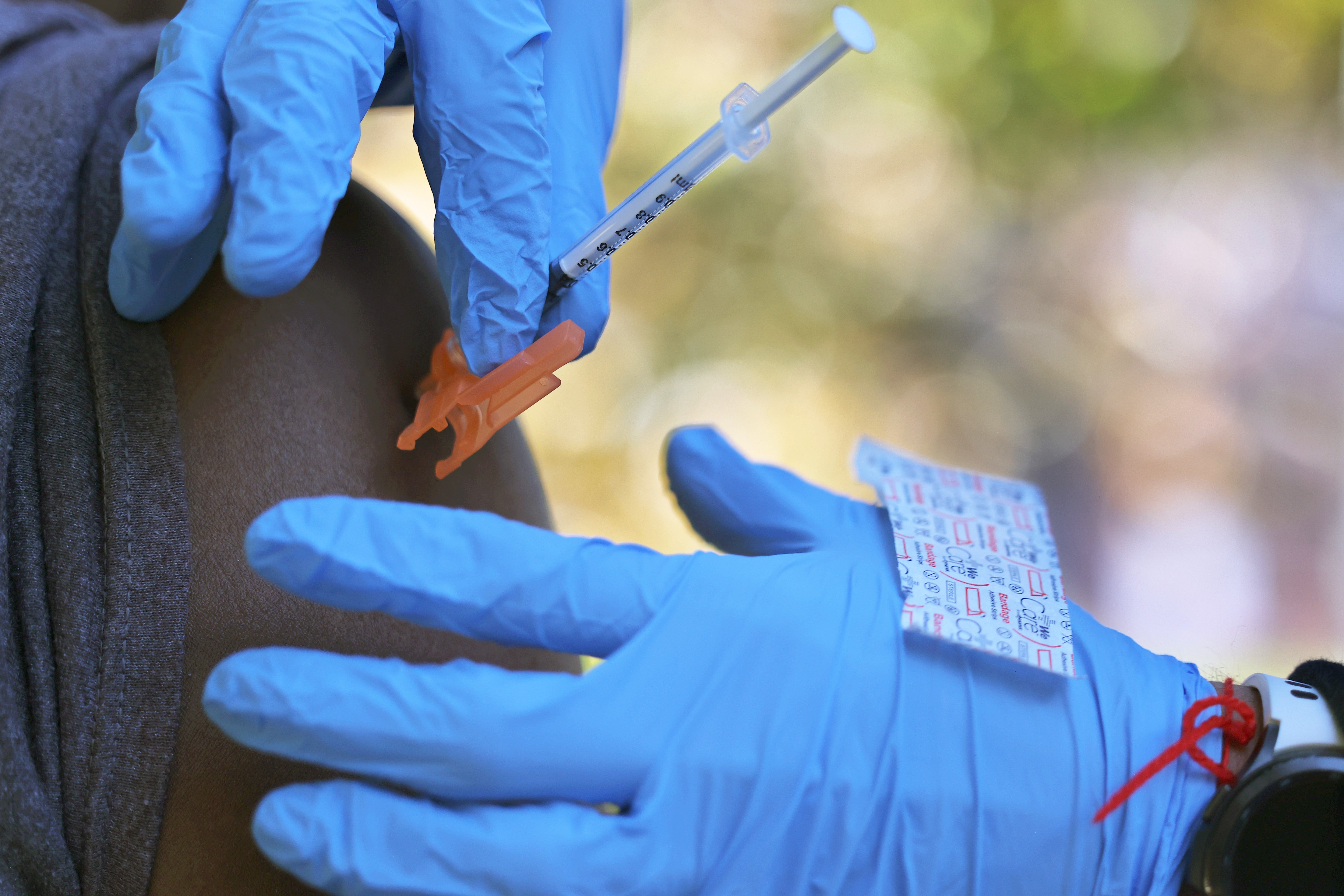Immunocompromised will need a fourth Covid shot, CDC says
US health officials recommend a second booster shot, six months after a third dose of the Moderna or Pfizer vaccine

Your support helps us to tell the story
From reproductive rights to climate change to Big Tech, The Independent is on the ground when the story is developing. Whether it's investigating the financials of Elon Musk's pro-Trump PAC or producing our latest documentary, 'The A Word', which shines a light on the American women fighting for reproductive rights, we know how important it is to parse out the facts from the messaging.
At such a critical moment in US history, we need reporters on the ground. Your donation allows us to keep sending journalists to speak to both sides of the story.
The Independent is trusted by Americans across the entire political spectrum. And unlike many other quality news outlets, we choose not to lock Americans out of our reporting and analysis with paywalls. We believe quality journalism should be available to everyone, paid for by those who can afford it.
Your support makes all the difference.Immunocompromised individuals have been advised to get a fourth dose of the Covid-19 vaccine, according to updated guidelines from the US Centers for Disease Control and Prevention (CDC).
Those who are above the age of 18 and are moderately or severely immunocompromised may need an additional shot six months after they have received the third dose of the Moderna or Pfizer vaccine, said the CDC in its Tuesday update.
The fourth dose may be of any of the three available vaccines, including Janssen. Moderately to severely immunocompromised people include those with existing conditions such as cancer, recipients of organ transplants or those being treated for HIV, among others.
According to data from the CDC, about 9 million individuals living in the US fall in this category. Earlier in August, the agency had authorised the use of a third dose booster for this category of people.
The CDC had last week approved booster shots for all Americans that can be different from the vaccines they initially received.
Earlier this month, the WHO had also advised additional doses for those with lower immunity due to underlying health conditions.
A study from Johns Hopkins University showed that despite being fully vaccinated, immunocompromised people were 484 times more likely to be admitted in a hospital or die from the infection, as compared to the other vaccinated individuals.
The side effects of a Covid-19 booster shot is likely to mirror those experienced by people after their second dose of the vaccine, found a study published by the CDC in September.
The report found that the side effects were mostly mild or moderate and included arm pain, fatigue and headache.
People experienced the side effects mostly the day after the vaccination with about 28 per cent of the people saying they were unable to perform routine activities, found the study.
Join our commenting forum
Join thought-provoking conversations, follow other Independent readers and see their replies
Comments